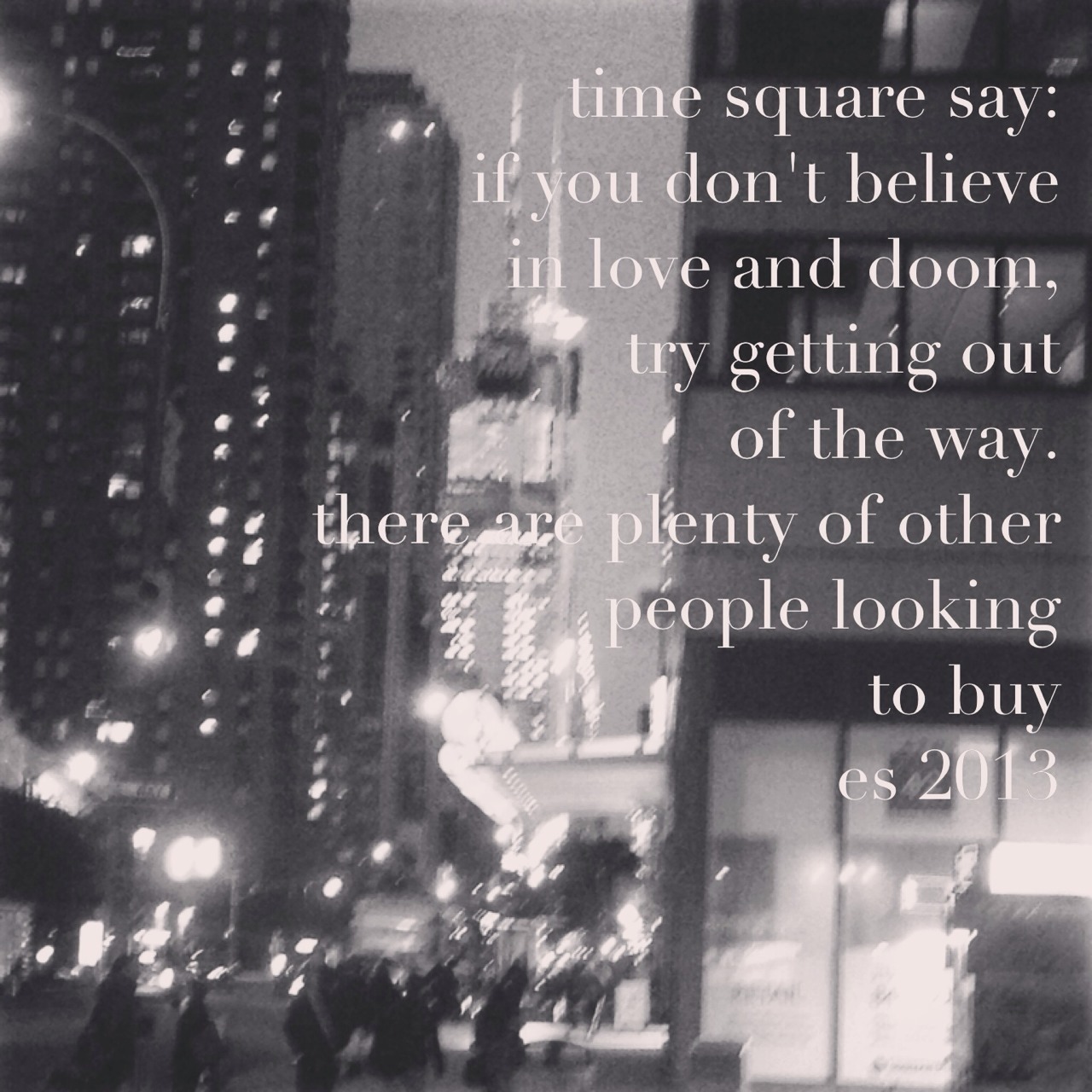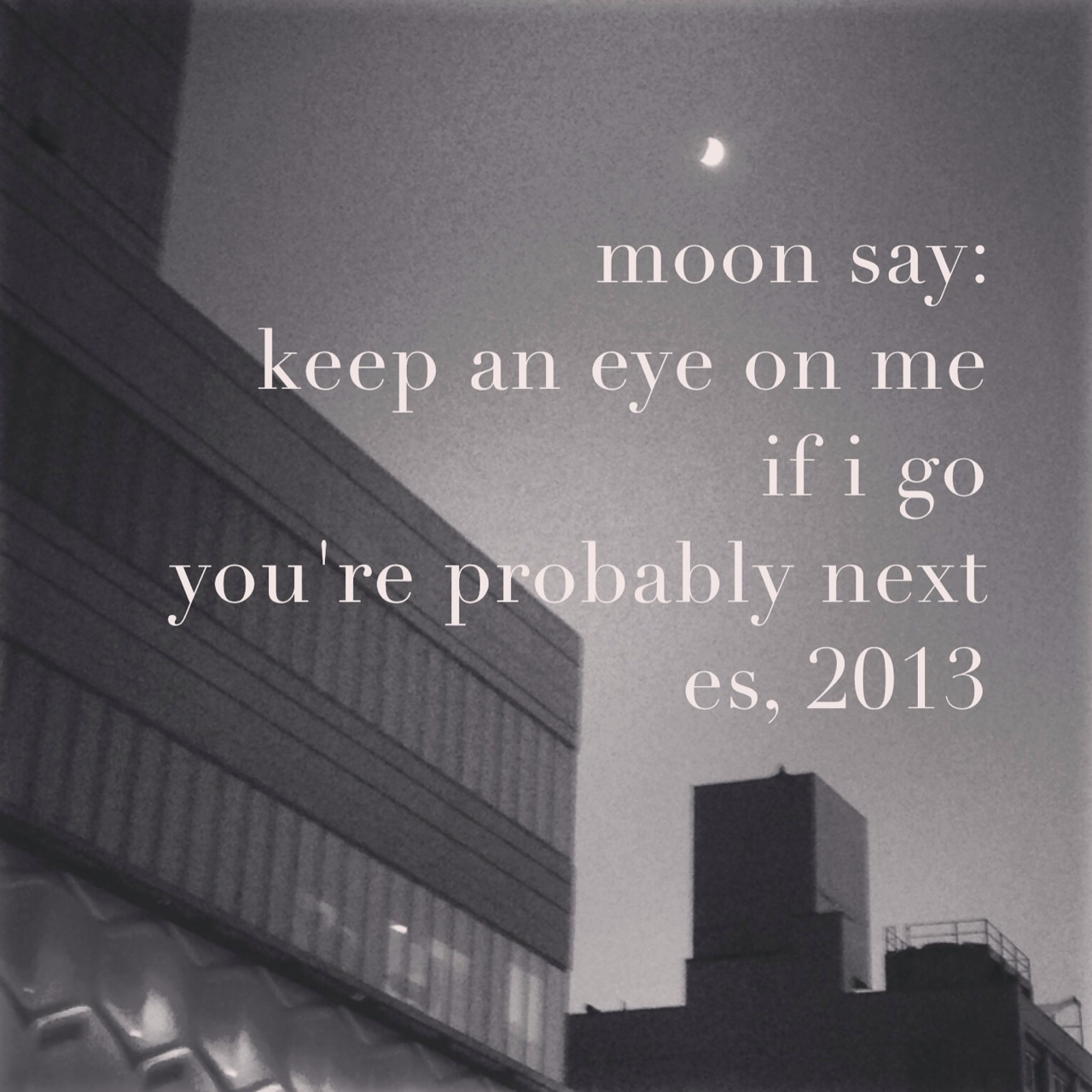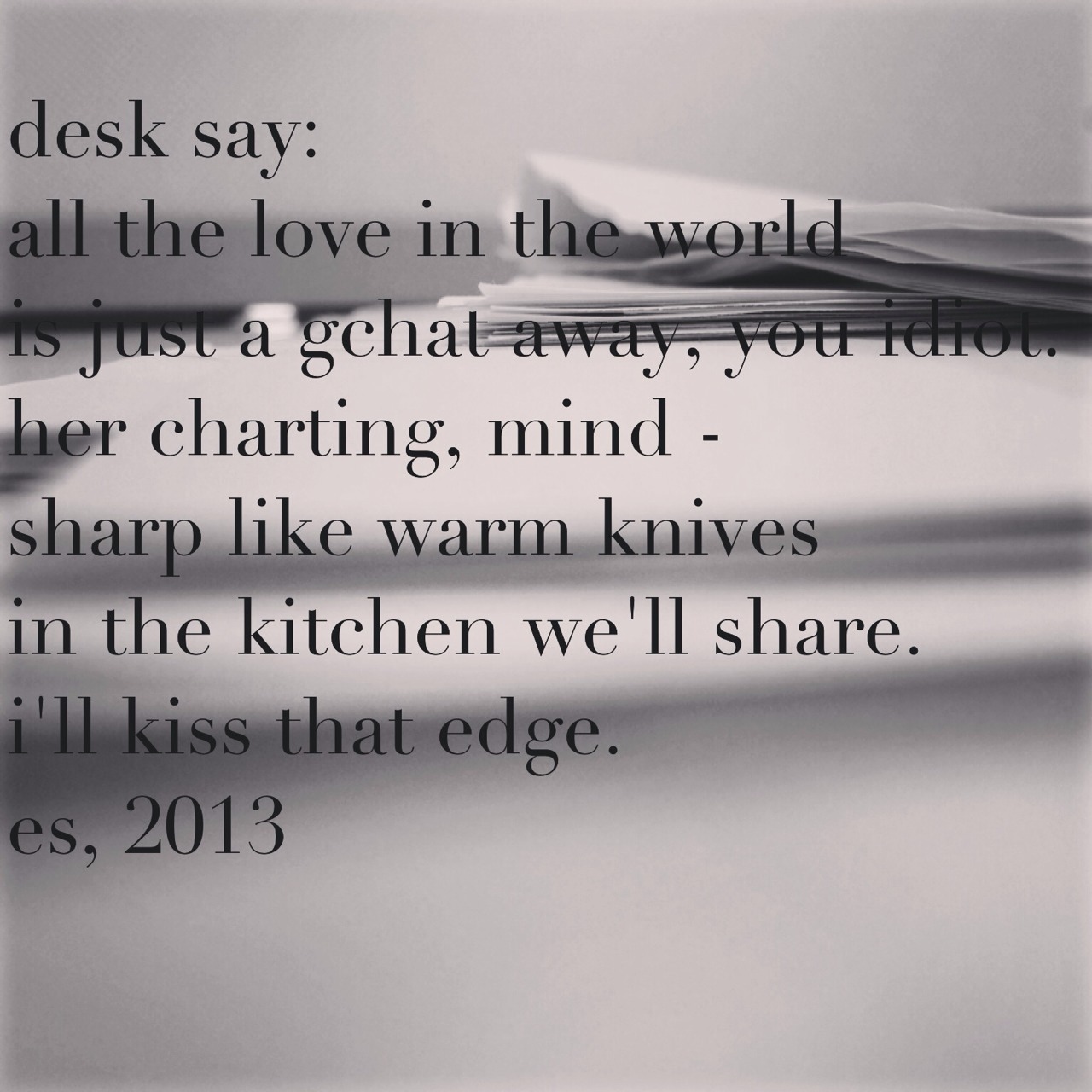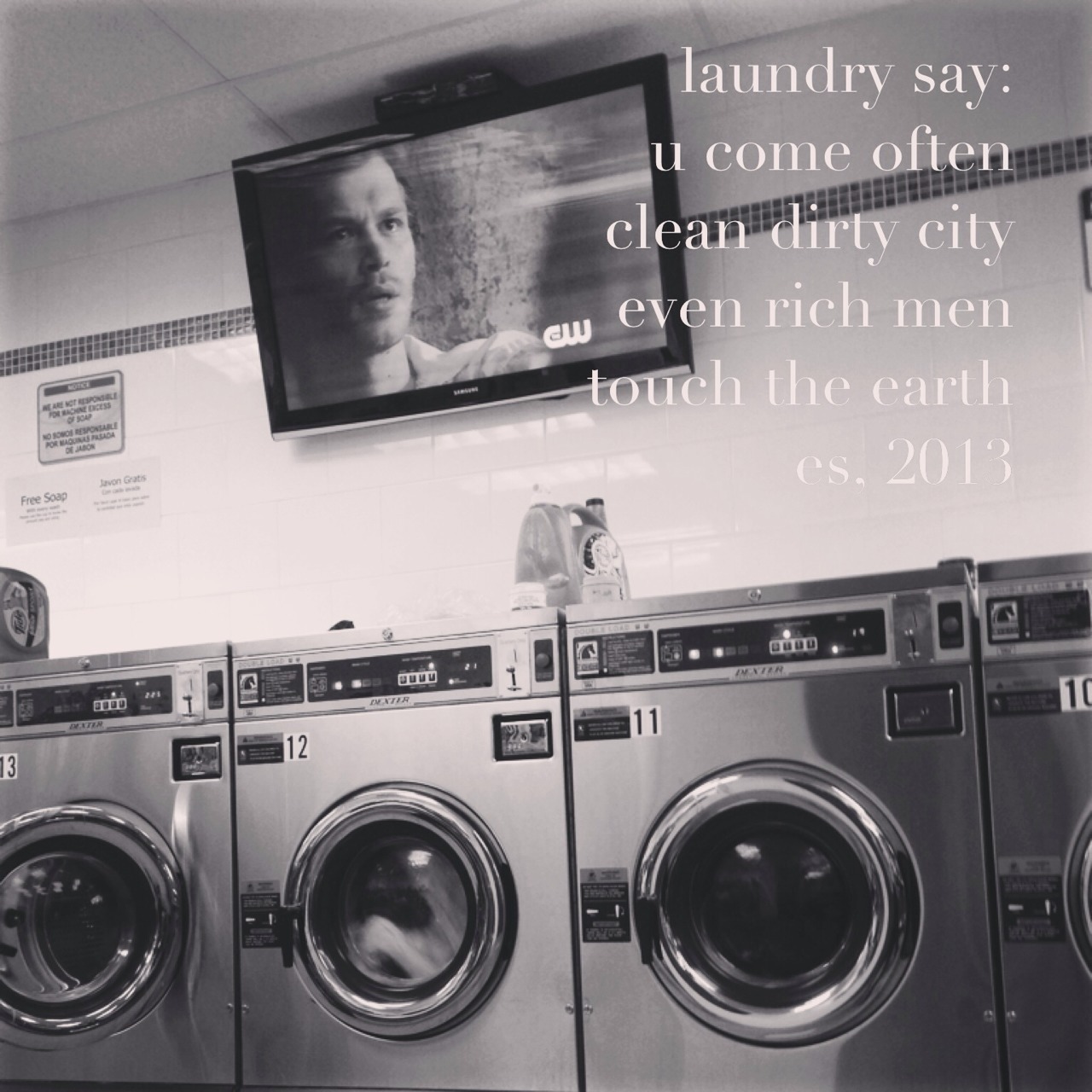Erik Stinson
I was born at a Seattle Washington hospital in December of the year 1987, to my mother, Julia, and father, William. My mother was math and science teacher. My father was a mechanical engineer for an airplane manufacturer.
I was born at a Seattle Washington hospital in December of the year 1987, to my mother, Julia, and father, William. My mother was math and science teacher. My father was a mechanical engineer for an airplane manufacturer.
Williamsburg is a place that memorializes masculinity while at the same time re-coding it. In the ‘olden times,’ man worked in a factory, provided for a family, controlled everything in a calm and fairly inarticulate manner. This sometimes worked. So I’ve read.
More often, the industrial society led by men descended into war, violence, chaos.
In 2006-2014 Williamsburg there is a bar called “Bar-cade” that is about a late 20c nerd’s revenge on the New York Nightlife. It’s post-industrial. It’s information society.
Inequality continues to take dramatic new forms, evolving and building on itself at the speed of transaction and at an inconceivable scale with a voided structure that can be more easily compared to a feudal economy than an economy of the 20c Post War period of American power.


The well-respected, finically solvent and totally fun-to-chill-with advertising agency Droga 5 created these outdoor ads for the Coca-Cola Company, which recently appeared on the streets of New York City. They have a poetic quality, seeming to evoke certain characters and a unique Manhattan headspace. Longer than most written ads, and with an obvious, weighted subtext, they speak in a slippery psedo-literary voice.

I should say that I’d never seen a full episode of Dawson’s Creek until 2013. This surprised my girlfriend Jackie, so she encouraged me to watch the series. Growing up, I wasn’t allowed to watch commercial network TV. I didn’t really start watching primetime soaps until early high school. Before that, I was only interested in The Sci-Fi Channel.
Maybe I was expecting something a lot more expansive, and a lot less safe? I was expecting The OC plus grunge plus Boston. What I got was Boston minus grunge.
Dawson himself looms largest in a full Netflix viewing of the series. His very personal, very idealized type of optimism bleeds over and across the typically 3-5 plot lines that run between and within each episode. Constantly craving a pure articulation of his artistic vision that could merge effortlessly with his romantic inner-life, he almost always fails to live in reality. His over-greased wide-angle-lens-POV on his hometown of “Capeside” Massachusetts, and particularly its high school experience, becomes charmingly narcissistic.
It is an old, mellow form of mass-culture narcissism. I sip video cuts to form a smooth, rich blend of teen longing, the residue of good parenting, and the nearly raceless, nearly classes, nearly Internet-less painting of a total herb who came-of-age in a 1990s New England TV land.
Meta-naivete. This is the best feature of the show. The slowness, the tween-camp and the scripts that seem to lay open the inner guts of the 1990s TV studio production mechanics.
The show is about a boy. And the boy seems to know that his life is worth being made into a show. The show supports this theory by continuing to be about him, long after the viewer has become exhausted by whatever small intricacies of character have been pummeled to meaninglessness sludge by endless waves of episodic plot.
And of course, Dawson is a young filmmaker, soaking in sappy meta narrative puddles. This plot ramps up slowly as high school ends and his directing career begins to take off.
His favorite director, stated repeatedly, is Steven Spielberg.
Dawson is not an interesting guy. He thrives under these odd, broad narrative circumstances. We, the 2013 adult audience of a vintage teen mass-media soap, are critically aware that this guy doesn’t deserve to be the center of the show, but, having maybe grown up in the 90s, also vaguely crave the easygoing jr executive male phallocentrism of Dawson’s bumbling tonality. He’s the harmless young hegemony we all looked to in our teen and pre-teen years. The tall handsome thinker. The class frown. His success isn’t surprising or remarkable, in the same way that the mega-success of an ensemble teen drama that slightly pre-dates the coming-of-age years of the millennials/echo boomers is almost destined to be. Huge audience. Mass-televised puberty.
Dawson: perhaps a very MTV form of pre-internet and early internet self-awareness, perhaps just a single character written for a booming tv teen audience, the size of which (proportion of total media mix on Wednesday nights during the school year?) may never be seen again.
Another series, The OC, was dramatically more artful and blissfully less New England. Having only lived on the East Coast for a few years, I’d venture to say Hollywood numbs the aesthetic and cultural disagreements between the eastern and western US, frequently casting brooding jews in California and bleached out surfers in Manhattan. The OC kind of blew up that balancing strategy to give California a naturalist primetime TV treatment. I watch The OC as a glossier, grittier, less-boring teen drama, aided greatly by an escape from the eastern (almost… bleakly European…? with a different orientation of class) middle-American malaise and successfully existing in the alien seascape-soundstage of Southern California dreams, a narrative location that Dawson’s Creek never tries to achieve, even as characters live briefly in Los Angeles.
Imagine dumpy, close interiors shot with old lenses, recorded on to worn magnetic tapes. Underwhelming vistas of what is supposed to look like coastal New England but is clearly someplace–a cheaper location–in the Carolinas. I guess what I’m trying to say is that Dawson’s Creek feels chained to some kind of older television convention, something sort of cheesy and safe, that The OC manages to shake off, for the better. Leave it to Dawson, I love Joey, The Capeside Bunch.
In addition to being trapped in greater-Boston-via-TV culturezone and within Dawson’s bland masculine show-running character, the tension of show rarely moves beyond the Dawson-Joey-Pacey love triangle. This triangle traps everything. Characters outside the triangle are vastly more insightful. The three other prominent roles make up maybe a third of underlying plot cycles, but are present in a much greater percentage of the really enjoyable scenes.
I guess.. even the designed-to-be-overlooked Pacey sometimes becomes interesting, in terms of his class position, especially. Dawson and Joey, the couple who are central in the first season, really paint a picture of zero personal growth. They, like a certain percentage of every generation, become trapped in a view of the world that pre-dates high school. They are barely-dynamic characters who, rather than learning something about themselves, just get older.
Joey, Dawson’s main love interest who evolves from a foil into the queen of her own universe of sappy, solopsistic femininity, is a huge problem for the show in terms of watchability. Her level of discomfort with nearly everything pushes the show slowly forward into the abyss of… longing for an ideal life that she never bothers to fully articulate? She wants everyone to read her mind and know what she wants before she does. Inexplicably (via the magic of TV writing), the entire world falls at her feet, begging for her affection.
She has almost no female friends.
She is an unrelenting downer, which is sometimes entertaining, but frequently just frustrating. She’s constantly running away from the present. But unlike Dawson, she apparently does this for personal rather than vocational reasons? Dawson has a dream and she has a choice to make between two high school suitors. Indecision, anxiety, a delusional work ethic. The big thing she wants in her life is to visit Paris, which she actually fails to do, initially – as if a single vacation could be a life’s goal. That’s basically what she has: a vague, unambitious desire to be a ‘study abroad’ person. The writers could have done a lot better.
I’m glad that I’ve finished the series. Jackie and I agreed that watching the whole thing probably wasn’t worth it. The first three episodes and the last three would suffice.
On a final negative note, on Netflix the entire series except the final two episodes features a replacement opening theme song. It goes something like “Heat is in the sky / head is on the ground / feet are in the air / my life is turning around… voice inside my head / telling me to run like mad…” it’s fucking awful. I assume that the Netflix-rights sale didn’t include or couldn’t afford the rights to a lot of the original music. The series would have been more entertaining with the original pop songs.
Guest post by Emma Needleman
I.
The other day, I clicked a link to an essay called The Zambreno Doll, a prose poem by Garett Strickland. The essay—apparently inspired by the experience of Kate Zambreno unfriending him on Facebook—disgusted me. In it, Strickland accuses Zambreno of deliberately “occluding” him on the basis that he’s a white male, speculates that she needs to hatefucked by a real misogynist, and gleefully fantasizes about turning her into a doll.
Reading the piece infuriated me. I’m tired of seeing women I respect get treated like this. It made me so angry that I broke my New Year’s resolution to stop fighting with people on the Internet, and I left a series of comments calling Strickland a “dweeb” and a “loser.” I would like to take the opportunity to say that I stand by these statements. Later, I wrote longer comments calling attention to the gender dynamics of Strickland’s piece, and I also stand by these statements, although not to the same degree as my original assertions that he is a dweeb.
Garett wrote comments, too. They said things like:
“Ah yes right. Forgot I’m a man. Just a man. Not a person or a human or a life, but a man. Just a man. Way to put me in my place!”
“I just looked up the definition of misogyny to make sure. No, I don’t hate women. So I wouldn’t consider [my piece] misogynistic.”
“I find all this cultural obsession with gender objectionable to the point of boredom.”
“Rather than simply keep my mouth shut regarding my opinions—or ghettoizing those opinions to conversations where I can make certain I’m only being agreed with, a la Zambreno—I’ve decided to share them out of an obligation I feel toward radical openness.”
::: :::
Like Strickland, I’m writing this piece because of an obligation I feel towards radical openness. I don’t want to restrict my conversation to places where I know my opinions will be agreed with, like among Mr. Strickland’s ex-girlfriends. That’s why I wanted to write The Strickland Dildo. It’s an exploration of the cultural forces that enable things like The Zambreno Doll to exist.
II.
Garett Strickland looks exactly how I would expect him to. His author photo shows him slumped in a chair, holding a (fake?) gun and looking stoned. He looks like ninety percent of my male friends: scruffy hipsters who earnestly think that people want to hear about their taste in music, dudes who smoke weed all day, and insist that being 1/16 Native American means they’re not “really” white.
I Google him and instantly regret it. It’s exactly what he wants me to do.
::: :::
The evening after The Zambreno Doll is published, my doorbell rings. When I open it, I see that a small, brown package has appeared on the porch. Could it be? The Strickland dildo? The phallus itself?
I bring the package inside quickly. If it’s the dildo, I already know what I’m going to do with it: take mocking photos of it and post them online. I have a whole series planned out. First, I’ll get my prettiest girlfriends to hold it up and make a face like they’re going to be sick. Then I’ll put a little Santa hat on top of it. Finally, I’ll feed it to my neighbor’s dog.
I tear open the package but find no phallus. Insteadi, it’s a set of twelve toy soldiers, the old-fashioned metal kind. I’m disappointed. I didn’t ask for these. I wanted a doll, or its equivalent. Why should Garett get one and not me?
But I know why. Because he’s had it all along. Because he didn’t have to ask. Tears fill my eyes. This is confirmation of a terrible reality.
::: :::
Lately, I’ve been sitting in on an undergraduate class on 19th century German philosophy. The class begins with Kant and concludes with Nietzsche’s On The Genealogy of Morality. I like Nietzsche, maybe more than I care to admit. I certainly like him more than anyone else in the class, even though the other people in the class are all twenty-year-old boys, and twenty-year-old boys have historically been Nietzsche’s primary audience.
I like Nietzsche because he understands cruelty. He knows that we need to be cruel and that we need to know that we are cruel. If we don’t see the pain on the Other’s face, we will destroy ourselves. I believe this is true.
But I don’t think that this paradigm applies to Garett, who just wanted to “put Kate in her place”—to make her feel bad so he could feel powerful. He felt so entitled to that power that he became angry when she exercised even the tiniest bit of agency. He implied that she needed to be hurt, that she needed him to hurt her. That’s why I’m comfortable writing things like, “cry harder, dweebus” or “your dick is gross and bad.”
::: :::
After a few days, I take out the toy soldiers again. Maybe I can do something with them—give them to a thrift store or homeless shelter. I open the box and notice that the soldiers look different, somehow. I squint and lean closer. Suddenly, I realize what it is: each of them has a distinct and highly detailed face. How did I not see it before?
I pick one up and examine it. It’s Garett Strickland. I pick up another one. It’s Sigmund Freud. I pick up another one. It’s the kid from my writing workshop who only wrote stories about women getting murdered. I pick up another one. It’s the man who grabbed my ass the first time I rode the subway by myself.
By now, my heart is pounding. I check the rest of the soldiers and confirm: yes, I recognize all of them. Yes, yes, they’re all here. It’s time. It’s finally time. I know what I have to do.
I go into my bedroom and put on my hiking boots. Then I line up the metal soldiers in two neat rows and crush each one under my feet. Like I said before, I find this cultural obsession with masculinity objectionable to the point of boredom.
I failed several times to organize an in-person interview with my friend, writer David Fishkind. We web-chatted at length about drinks in the East Village of Manhattan. In the past, we had sometimes gone to…






Late 2013
This tribute to anti-office poet-burnout Slash Lovering–who died on this day in 2004–continues indefinitely.
MERCEDES S SERIES COUPE 2012
I SEE THIS SHIT ON BUSHWICK AVE; NOTICE THE V12(?) ENGINE DECAL AND HOW FUCKING SMOOTH IT HOVERS AT THE CURB BELOW THE OLD GREYSTONES NEAR MYRTLE. IS IT A DRUG THING OR JUST A BAVARIAN STEEL LOVER, WHO WENT ALL IN? WHO KNOWS? WHO CARES? – IT’S A HEAVY PUSHED-OUT RIDE. YOU IMAGINE THE STREETLIGHTS BOUNCING OFF THE BUBBLE GLASS EVEN WHEN IT’S STANDING STILL.

CHRYSLER 300 2006-2014 (Above)
EVERY DAMN MODEL YEAR THIS ONE GETS MORE LEGIT. PEOPLE LOVE THIS CAR FOR IT’S BULK, I GUESS. THE WHOLE THING LOOKS HEAVY, SERIOUS, AND A LITTLE BIT BAT MOBILE. YOU SEE EM WITH THE MATTE BLACK RIMS. YOU SEE EM WITH THE AFTERMARKET BENTLY GRILL. THEY ROLL REAL SLOW AND PARK REAL NICE. JOHN VARVATOS EDITION WHO? I GUESS PEOPLE ROLL THROUGH IN THE DODGE VERSION OF THIS, THE CHARGER, BUT IT’S NOT REALLY MY PREFERENCE AND SEEMS WAY WAY LESS EMPIRE STATE OF MIND.

I guess this post is about the illusion of choice, and the anxiety of it.
The two big news stories of the day, aren’t really stories, and don’t really matter, unless you’re some kind of power player in NYC politics, or someone trying to make a living by manufacturing iPhones in an industrial park in China.
Peacetime Nap
I can remember this thing happening before on HTML Giant, at least twice. There was a comment-less winter, recently. I also remember summer 2012 being pretty mellow and quiet. I remember posting about trains and like… annual reports.
Commenters and contributors get periodically underwealmed by the quality of what’s being written. Everyone checks out for a few months.
OK. Great. Rather than try to break this up and inject/ejaculate/energize the comments sections (something I don’t have the ability to do anyways), I’d like to lull HTML Giant into a deep and productive slumber: a lengthy hibernation induced by a lack of engaging or enraging content.
A bit about my week.
For readers who don’t know, which I hope is most, I live in Brooklyn and work in Midtown Manhattan. Sometimes this can be really pleasant and even convenient, but this week the Superbowl is being held in New Jersey and New York City is attempting to ensnare peripheral tourists as well as thick swarm of media that constantly moves through the veins of the city.
I think it’s called “Super Bowl Avenue” or something but is really just this lengthy stretch of Broadway (the lurid and fun diagonal street Dickens called the best in the world, at one point), including all of Times Square, that has been packed with a circus of giant logo-filled screens, satellite trucks, giant foam photo opportunities, military police patty wagons, children’s play areas, and maybe 50% more advertising than would be usual.
I get to walk through it on the way to and from my office, which is a lot like dropping acid for breakfast and dinner 5-days in a row. At this point, I’m able walk in the fetal position.
This morning we awoke to unforgiving gray everything. It was a little warmer, in the 30s, we hoped.
Been taking it easy at work. I might have stomach flu or something. Been feeling like shit, body-wise.
Last night, I watched The Hunger Games and cried. Never cried about anything written on this website.
So, I hope you like the Super Bowl, if you plan to watch.
It’s a lot like a Hunger Games, except that everyone dies at like… 50 instead of like.. 17. Oh and I guess it’s all-volunteer, instead of just one person volunteering. I wonder if the world would be more or less violent without the institutional application and transmission of national blood sports?
Today, I’m sort of feeling like blood sports are releasing more tension than causing… who knows.
Heard somebody say, in the last few days, that football is like a war that is possible to win: a grand national delusion of a win-able war. I keep turning that one over again on the room-tempurature BBQ of my mind. I was never personally aware of a war that was won.
At least literature is like… a war that everyone knows they will lose. That’s good.
I’ve been afternoon-dreaming about beaches and swimming pools.
I’ve been trying to remember the center of sleep.
January 31st, 2014 / 11:56 am